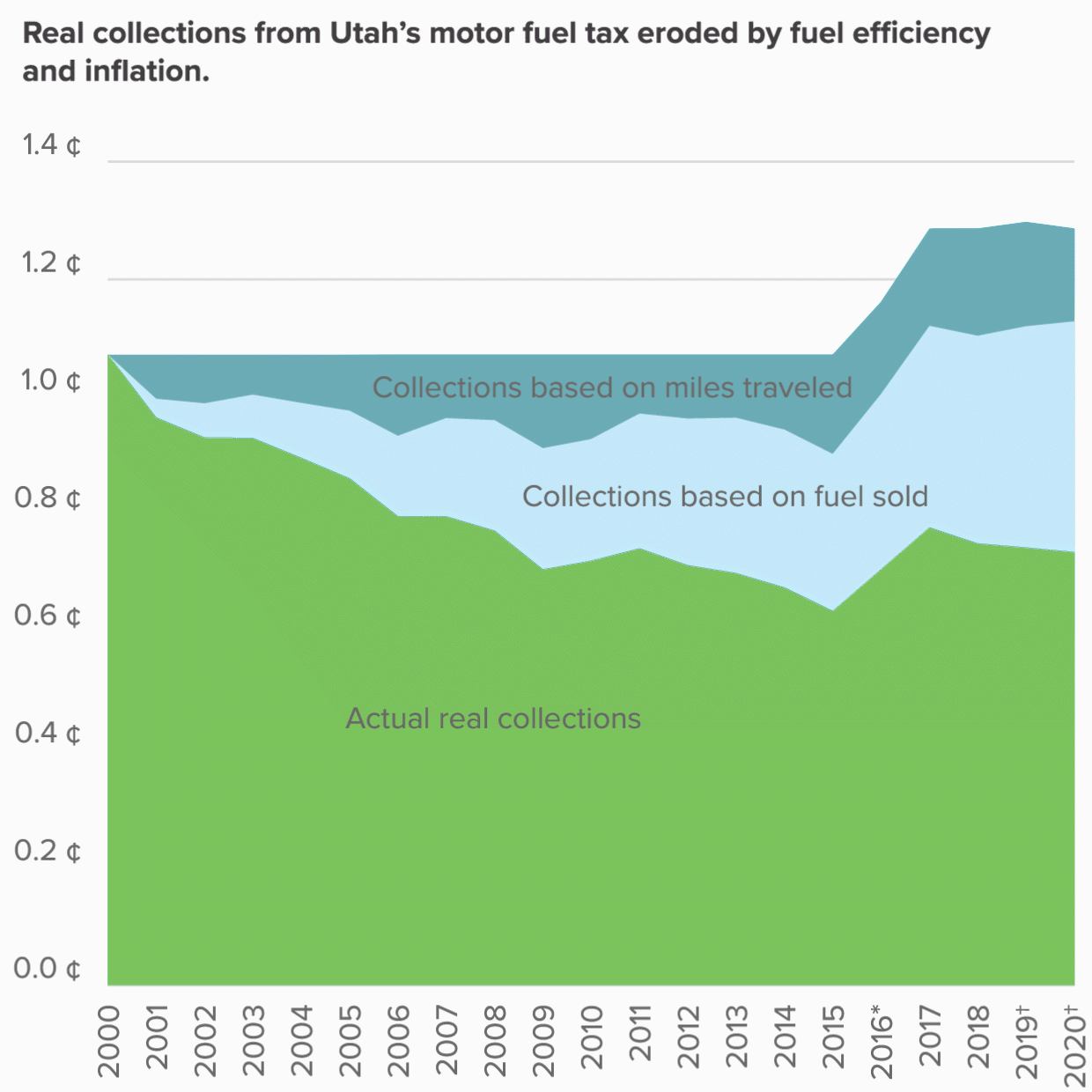Utah has joined about a dozen states in exploring a new kind of revenue for road maintenance that charges drivers for miles driven, rather than fuel consumed. While many states have conducted research and pilot projects on road usage charges, Utah and Oregon are the only two states with currently operating programs.
Measuring the Miles: Road Usage Charges in Utah examines the broader movement toward road usage charges among the states; how these charges can be implemented; the advantages and disadvantages of the types of implementation; and Utah’s new road usage charge program for electric and hybrid vehicles.
Among the findings of the new report:
- As structured, fuel taxes have become financially unsustainable as increased vehicle efficiency has led to lower revenue per mile driven; for the past 15 years, states have experimented with road usage charges as an alternative approach.
- Two states currently have road usage charge programs in operation: Oregon and Utah. In both states, the programs are targeted at electric and hybrid vehicles, which pay less or no fuel tax.
- The track record of road usage charge pilot projects and existing programs suggests that they are a feasible transportation funding mechanism.
- The costs and complexity of implementing a full-scale road usage charge program can be significant; policymakers must be careful to ensure that the cost in achieving their revenue and policy objectives is worthwhile.
- While road usage charge programs are primarily meant to address the deficiencies of the motor vehicle fuel tax as a revenue generator, they can be crafted to address other policy objectives as well, such as improvements to traffic congestion and air quality.
- While road usage charge programs pose potential fairness and privacy issues – and could disincentivize fuel efficiency – they hold the potential to be fairer in some respects than gasoline taxes.
- The somewhat experimental nature of road usage charges suggests a gradual approach to full implementation would be prudent, so that policymakers can learn as the program advances and modify it accordingly. Government vehicles can serve as guinea pigs for more robust implementation.


